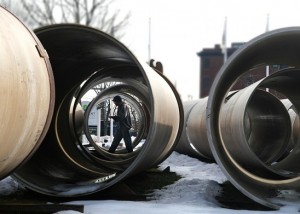 While the water companies have to comply with a number of new rules and regulations regarding water and sewerage services to developers, there remains a problem between the water industry and developers regarding charging for new connections.
While the water companies have to comply with a number of new rules and regulations regarding water and sewerage services to developers, there remains a problem between the water industry and developers regarding charging for new connections.
The Water Services Regulation Authority, or Ofwat, tabled a draft set of charging rules, which are under discussion within a Defra-convened task and finish group. The core idea tabled by Ofwat is that there are certain principles which companies’ charges for new connections must meet, while the design of these charges is to remain in the hands of the companies.
While this is how charging schemes generally work, developers are not that happy with this approach and have been rather critical of it, saying that it gives too much discretion to the companies and will result in companies taking different approaches, making it difficult for them.
Developers in the UK can either requisition the water or sewerage company to install the pipework for a new water main or sewer for domestic purposes or they can elect to choose their own contractor to do the work, which is known as self-lay, after which the water company will take over responsibility for self-laid pipes.
Only suitably qualified self-lay organisations (˜SLOs’) or new appointees are able to provide these services, and must abide by certain general expectations on assurance as laid out by the authorities and the water company, with which they must enter an agreement. This opens the market for them to compete with water companies to provide certain services, but there are still improvements which need to be made in order to remove potential barriers to competition that will enable SLOs to more effectively compete, and which will benefit customers.
Another perceived problem with Ofwat’s draft set of charging rules is that they also raised the idea of asset payments being made to developers where sewerage assets are adopted by water companies. This would bring about a significant change in what is currently happening though and there is no clarity as to who would be expected to meet the costs involved; water companies are loathe to pass on the costs to customers to pay developers.
Formal consultation needs to follow the current informal discussions, but under the circumstances it is doubtful that the new rules will take effect as from April 2017 as was envisaged by Ofwat as there is simply insufficient time to make necessary changes and implement them in time.





